How to play rock guitar like the legendary Michael Schenker
Schenker's pyrotechnic style lit up albums from UFO, Scorpions and MSG, and this lesson takes you inside his rhythm and lead approaches. Two-tone Flying V optional, attitude essential
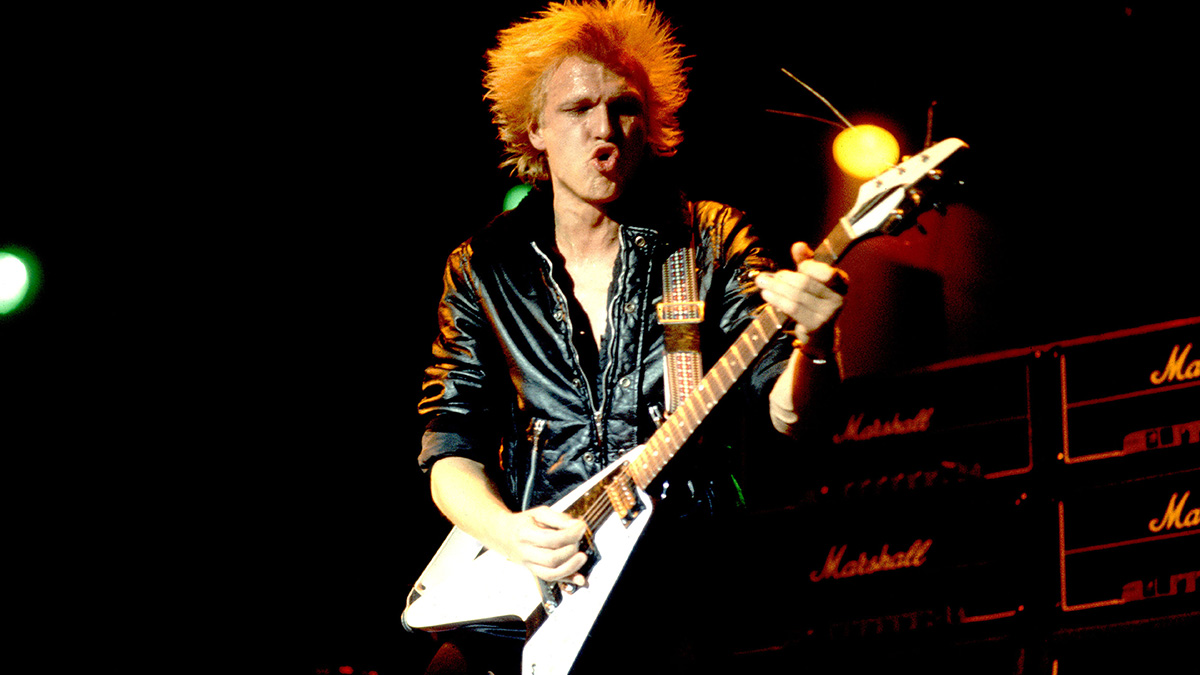
German rock guitarist Michael Schenker has had a career that has so far lasted for more than 50 years, and he has been an integral member of UFO, The Scorpions alongside brother Rudolph, and MSG.
He has also been linked with many bands that he didn’t join, including Deep Purple and Ozzy Osbourne. Schenker has also been the recipient of many awards over the years, and his contribution to the rock scene cannot be overstated.
Michael Schenker began playing guitar at a young age when brother Rudy was given a Flying V. He was influenced early in his playing career by the likes of Jimmy Page, Eric Clapton and Jeff Beck. This is where he learnt to play many of his easily recognisable pentatonic and blues scale phrases.
He actually left The Scorpions to join UFO while UFO were supporting the band on tour, although this was done with the rest of the band’s blessing.
Schenker’s style is about as ‘classic’ as it is possible to get, and he was one of the pioneers of this style of early heavy metal era playing, going on to influence well-known players like Paul Gilbert, Slash, Kirk Hammett and Randy Rhoads. Schenker has joined and left bands like UFO a number of times, and also had stints as the lynchpin of the Michael Schenker Group and McAuley Schenker Group, with singer Robin McAuley, and he continues to record and tour to this day.
The track below is in the key of A Minor A-B-C-D-E-F-G and doesn’t include any notes outside of that key. The time signature is 4/4 but the track has a shuffle feel, which means that the rhythm is played more as ‘1 & a, 2 & a, 3 & a, 4 & a’ part. The reason that the chart isn’t written in 12/8 is that the actual played rhythm of this track is ‘1 a, 2 a, 3 a, 4 a’. Basically the front of each beat is heavily accented.
With all powerchords and no 3rd to make them Major or Minor, the implied harmony is still from that key, so the corresponding chords are A Minor, C Major, F Major, G Major and E Minor.
The solo uses A Minor Pentatonic (A-C-D-E-G) and A Natural Minor scale (A-B-C-D-E-F-G) throughout. But it’s Schenker’s personal inflections that make it so much more interesting to play.
Get the tone
Amp settings: Gain 7, Bass 5, Middle 6, Treble 6, Reverb 2
Michael Schenker is best known for playing his Gibson Flying V, but he also had a V-style signature guitar from Dean. Guitar amps are Marshall Plexi-style, so it’s a classic Brit-type rock tone with plenty of power amp gain to aim for. Effects are minimal, but Schenker often uses a wah pedal set ‘half cocked’ as an EQ, rather than for a traditional wah-wah effect.
Rhythm example
Make sure the triplet-style shuffle rhythm is played accurately throughout and don’t rush ahead of the beat. There is more of a classic rock feel to the parts than traditional heavy metal feel, so don’t allow the rhythm to become too ‘metal’.
Solo example
Near the beginning of the solo there are a number of typical Schenker-style bends around the 8th fret. It’s most important that these are bent as accurately as possible (Schenker is a stickler for this), and then don’t overbend when playing the higher frets later on in the solo. Make sure you follow the other inflections, too.
Get The Pick Newsletter
All the latest guitar news, interviews, lessons, reviews, deals and more, direct to your inbox!
“There are so many sounds to be discovered when you get away from using a pick”: Jared James Nichols shows you how to add “snap, crackle and pop” to your playing with banjo rolls and string snaps
Don't let chord inversions bamboozle you. It's simply the case of shuffling the notes around



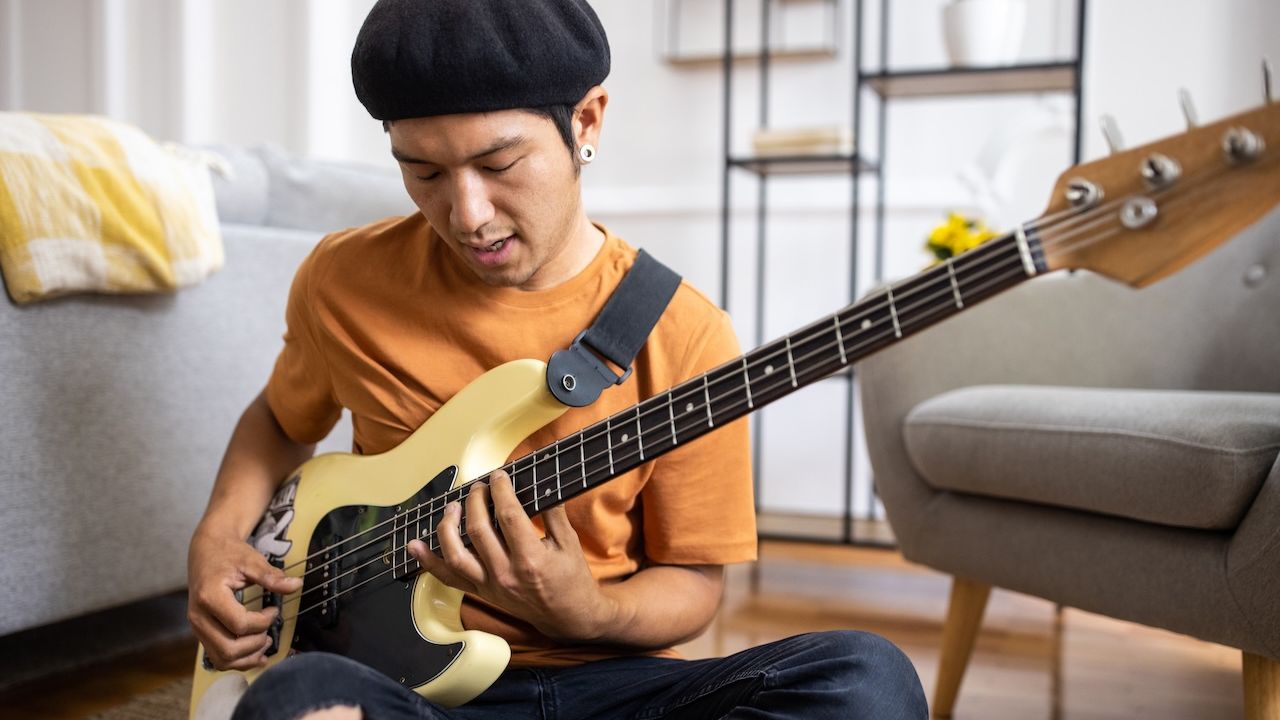
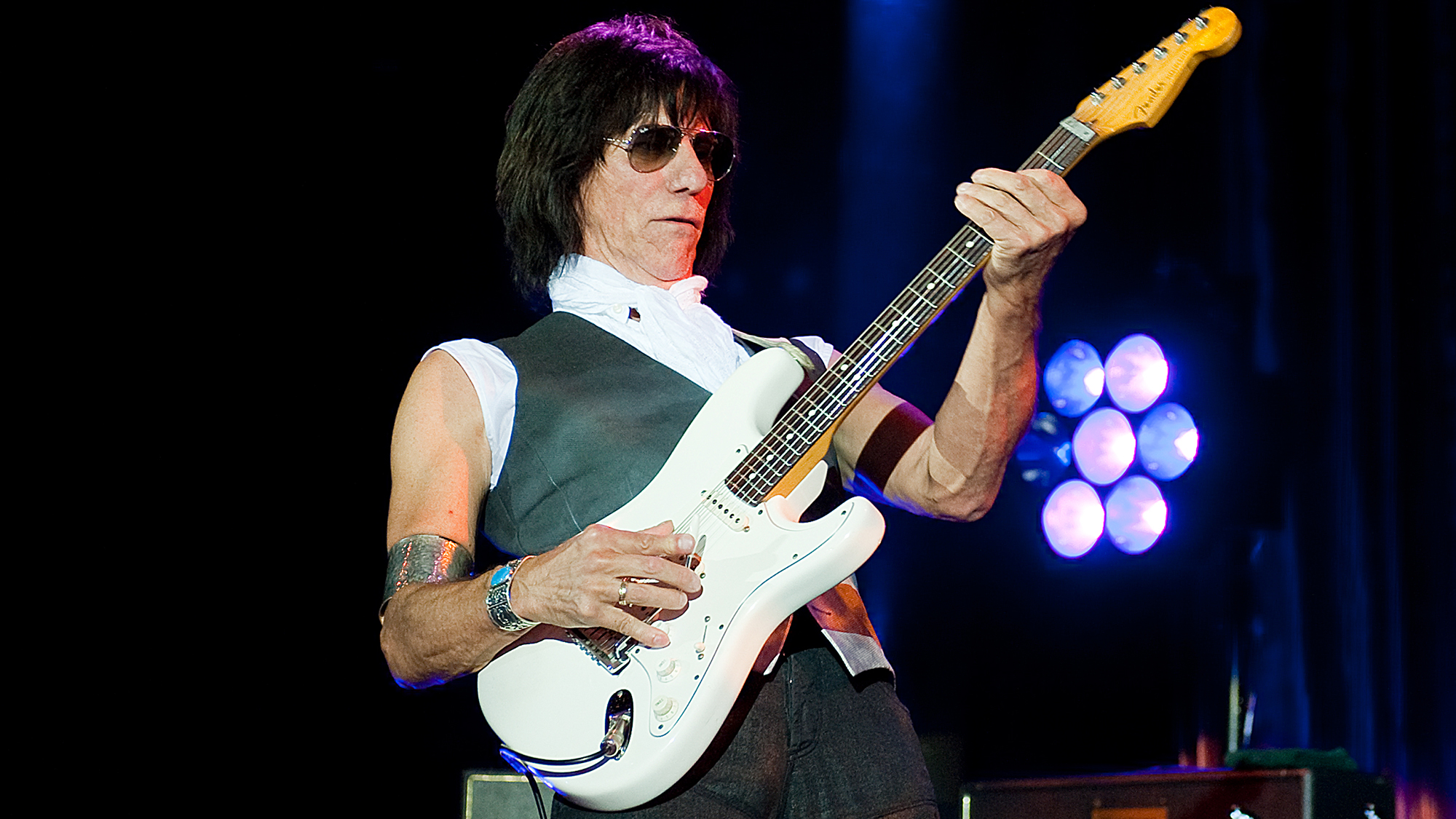
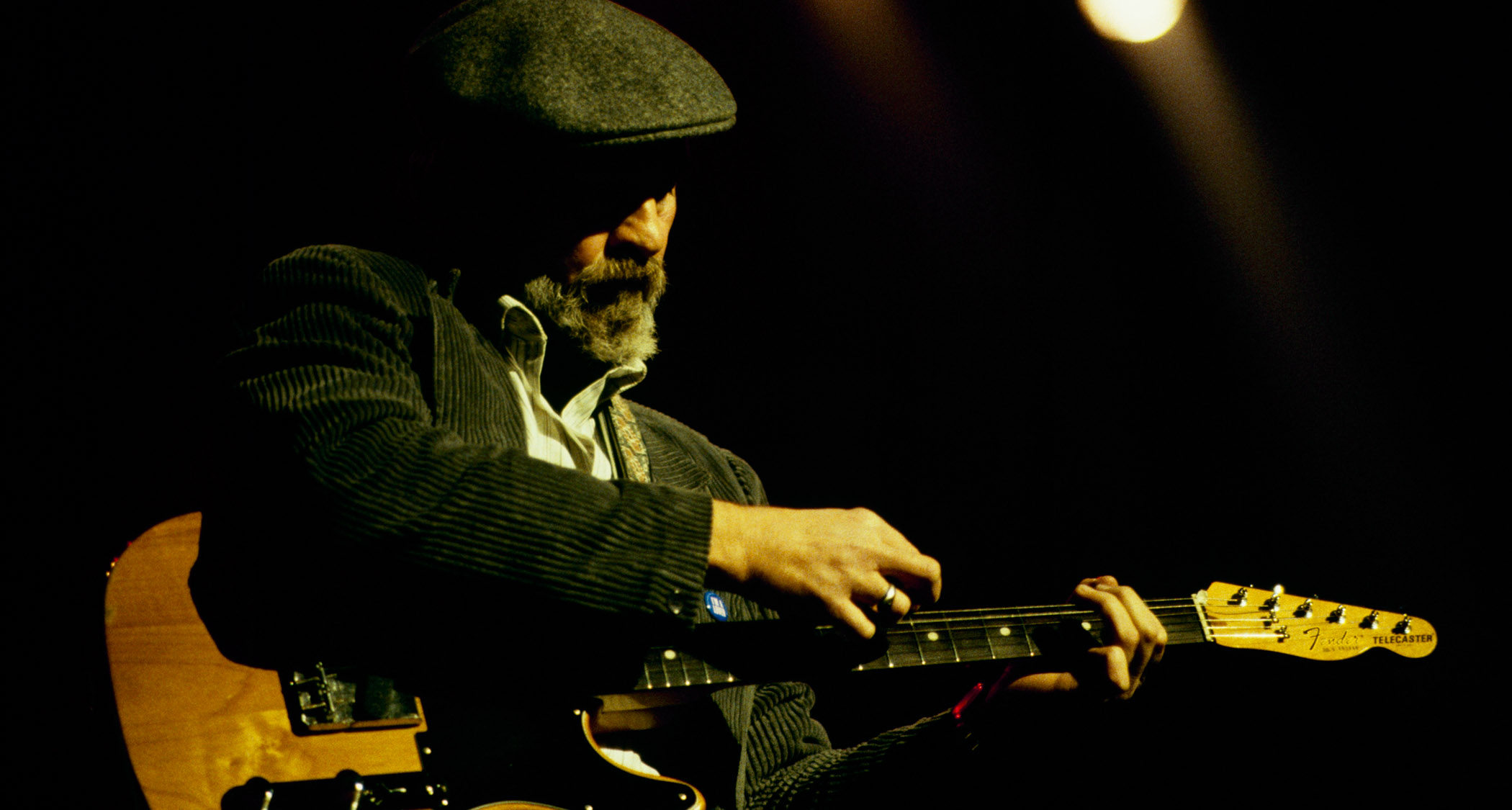
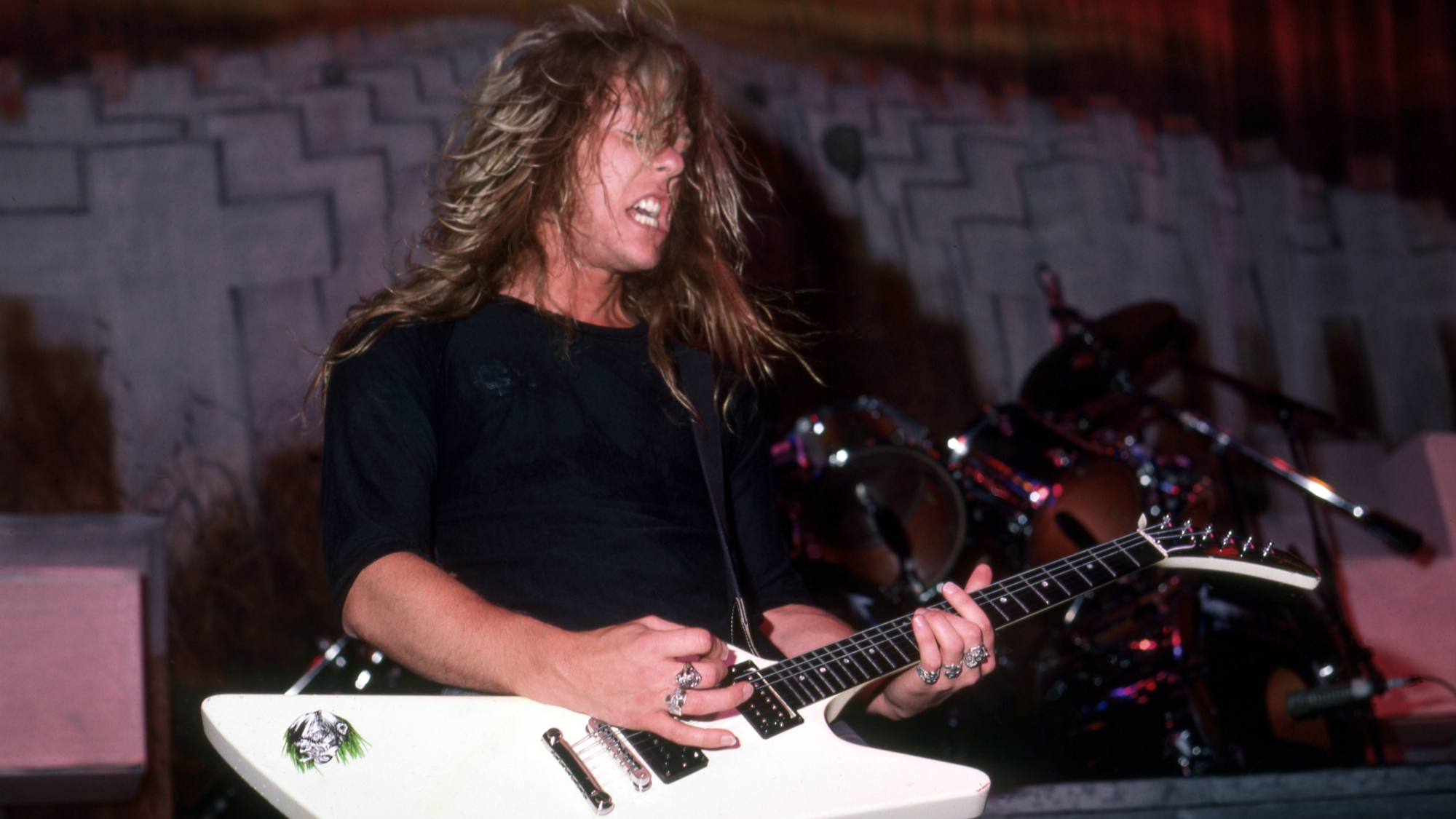
![Joe Bonamassa [left] wears a deep blue suit and polka-dotted shirt and plays his green refin Strat; the late Irish blues legend Rory Gallagher [right] screams and inflicts some punishment on his heavily worn number one Stratocaster.](https://cdn.mos.cms.futurecdn.net/cw28h7UBcTVfTLs7p7eiLe.jpg)


